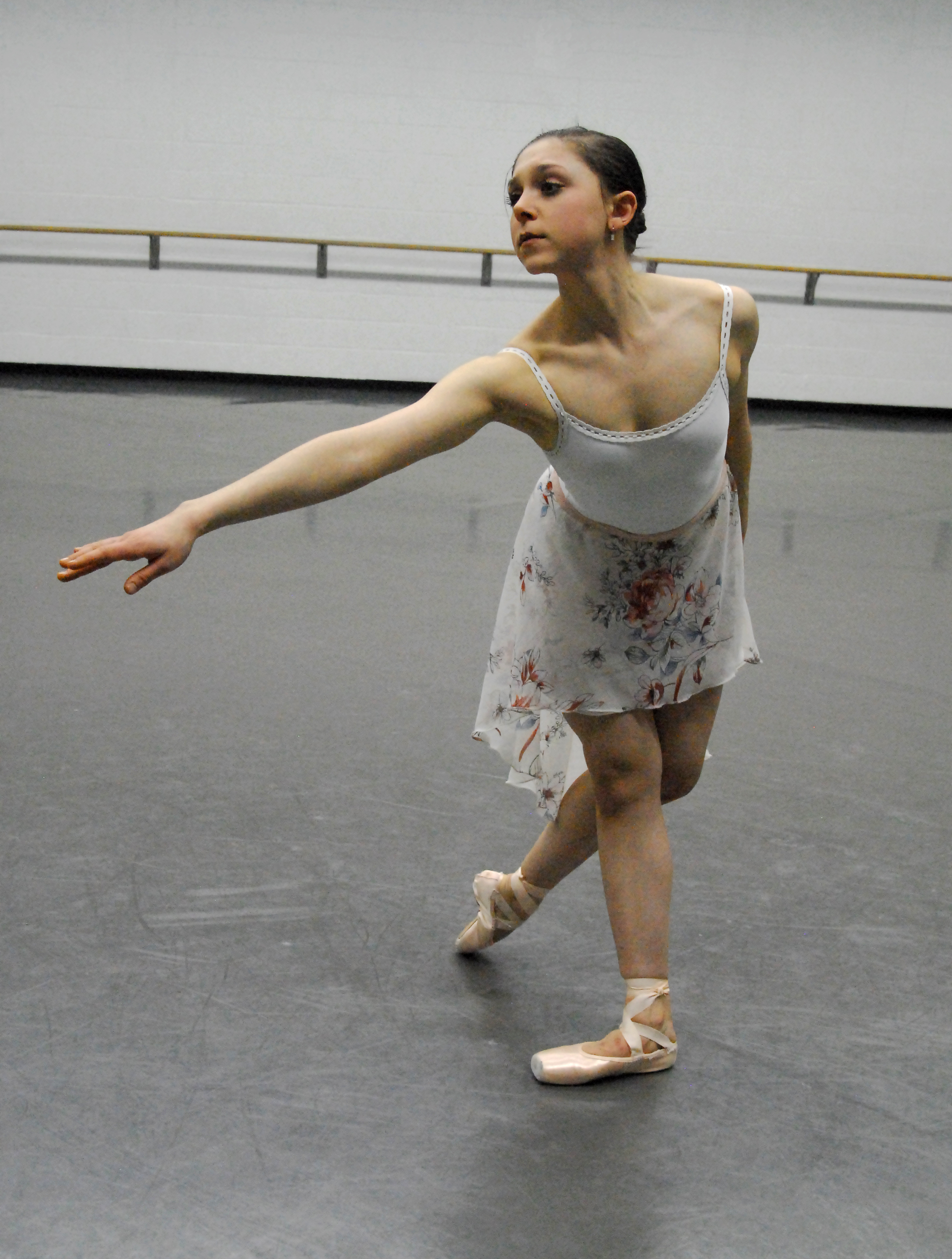
Madison Massara as Rebecca West in Val Caniparoli’s Ibsen’s House; photo by James Sofranko
By company dancer Connie Flachs
We continue our series of introductions to the famously strong female characters of playwright Henrik Ibsen that appear in Val Caniparoli’s Ibsen’s House in Extremely Close April 12-14 at Peter Martin Wege Theatre.
Here we are introduced to Rebecca West from the 1886 four-act play, Rosmersholm.
Rosmersholm was almost titled White Horses, to represent the ghostly specters referenced throughout the play whenever disaster threatens. Indeed, Ghosts would also have been appropriate if Ibsen had not already used that title in his previous work. Much of this play deals with the influence previous actions and people from the past have on one’s present. Rosmersholm further explores ethics and morality and questions whether they can exist outside a highly codified structure such as religion.
You sit in Johannes Rosmer’s (played by company dancer Josue Justiz) grand living room under the gaze of the stern family portraits lining the walls. You are struggling to keep your own gaze from darting to the mill-race just visible outside the window on your right. The whir of the mill and the splashing water threaten to conjure an image of the story you read in the papers nearly a year ago: Mrs. Beata Rosmer, in her fragile mental state, jumping over the railing in a last terrible exercise of agency.
In spite of your best efforts, Rebecca West (played by company apprentice Madison Massara) notices your straying eyes and rises to gently close the curtains. You shudder suddenly: The lack of sunlight combined with the morbid theme of your thoughts casts an eerie gloom over the room.
“We miss Beata dearly, Johannes and I both,” Rebecca states in a matter of fact manner.
“May she find peace in heaven,” you offer, embarrassed by your inability to hide your distraction.
A non-committal “Mm,” is all you receive in return from Rebecca.
“So, you’ve lived at the Rosmer residence for a while now?” You ask, to break the uncomfortable silence.
“Yes, indeed. Beata was so unwell, another lady of the house was a necessity. And Johannes and I have become quite close. He is a great thinker, a man of upstanding character. We have been following the debates happening in town with great interest. In fact, the papers just declared his alignment with the liberal cause. And, you know, he has left the church after his many years as a pastor. The laws of religion no longer govern his life. Nor do they govern mine, but I grew up in the passionate embrace of life, in the whirlwind of secular pleasures. And indeed, I’ve mellowed under the influence of the Rosmer rationality and nobility. But I’ve influenced him Johannes in return. His abandonment of the church went against the values the Rosmers have held for centuries. The existence of God has been unquestionable throughout the generations that live in this house. But times are changing now, rapidly, and we must look for the ultimate truth. The world is vast and quickly moving towards an era of free thought.”
“Ahhh…” you respond, struggling to process this speech. Women in town rarely put forth their opinions so blatantly, especially such heretical notions. You grapple for a response.
“You say and Johannes are close? Is there a celebration to be had?”
“Oh no. No no, nothing like that.” For the first time Rebecca’s unflappable nature seems shaken. “We have lived together as close friends, with great affection. If you must know – he recently proposed. But I couldn’t accept. No no. It’s not for me to take that role. Even if I do love- Even if I do respect him dearly.”
“Mm, well. I see. So…” The conversation is officially out of your realm of comfort. “Would you be so kind as to allow me to take a walk? I could use some fresh air.”
“Of course. Please, take your time. You can leave your coat and things here if you like.”
You exit to the garden and feel a rush of emotions flood over you as you step into the now blindingly bright sun. Laughter at the absurdity of Rebecca’s radical notions. Then tears of confusion at the emotionless calm around Beata’s death. It’s as though the house, steeped in the composure of Rosmer tradition, had suppressed your ability to feel this deeply. Shaking your head to clear your mind, you realize you have no desire for re-entry, not even to gather your belongings, and hurry away from the home, leaving behind the whir of the mill.
A few weeks later a knock on your door interrupts your work. The Rosmer’s maid, Madam Helseth stands on your steps, jacket and briefcase in hand.
“Oh how kind!” You exclaim. “I’m so sorry to have inconvenienced you, I truly meant to-”
Madam Helseth bursts into tears.
“Gone!” She sobs. “Gone like Beata. They both jumped over the- Oh I can’t even speak it! I can’t. If they had just married. They were so in love. I heard them whisper of it. But it would have been a marriage based on guilt. After Rebecca urged Beata to end her own misery she could never have taken her place in good conscience. And Johannes would have been haunted by the disapproval of his ancestors. But is death better? Is it better? Perhaps the truth is that peace is only found in that final rest. Yes! YES!”
You grab her shoulders, trying to calm her down.
“They had such IDEALS,” she screamed, hysterical.
“Shhh… shhh…” you whisper soothingly.
“They couldn’t do them justice. And now – NOW! The dead wife has taken them,” she gasps, and faints in your arms.
For tickets to Extremely Close, call 616.454.4771 x10 or tap or click here.


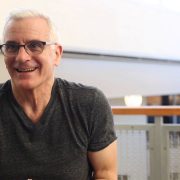
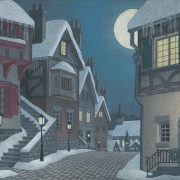



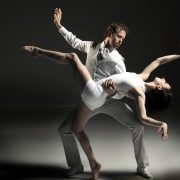
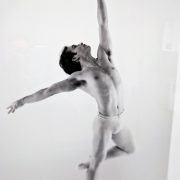
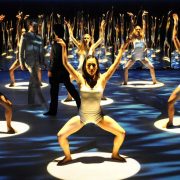


 Cassidy Isaacson as Hedda Gabler in Val Caniparoli's Ibsen's House
Cassidy Isaacson as Hedda Gabler in Val Caniparoli's Ibsen's House